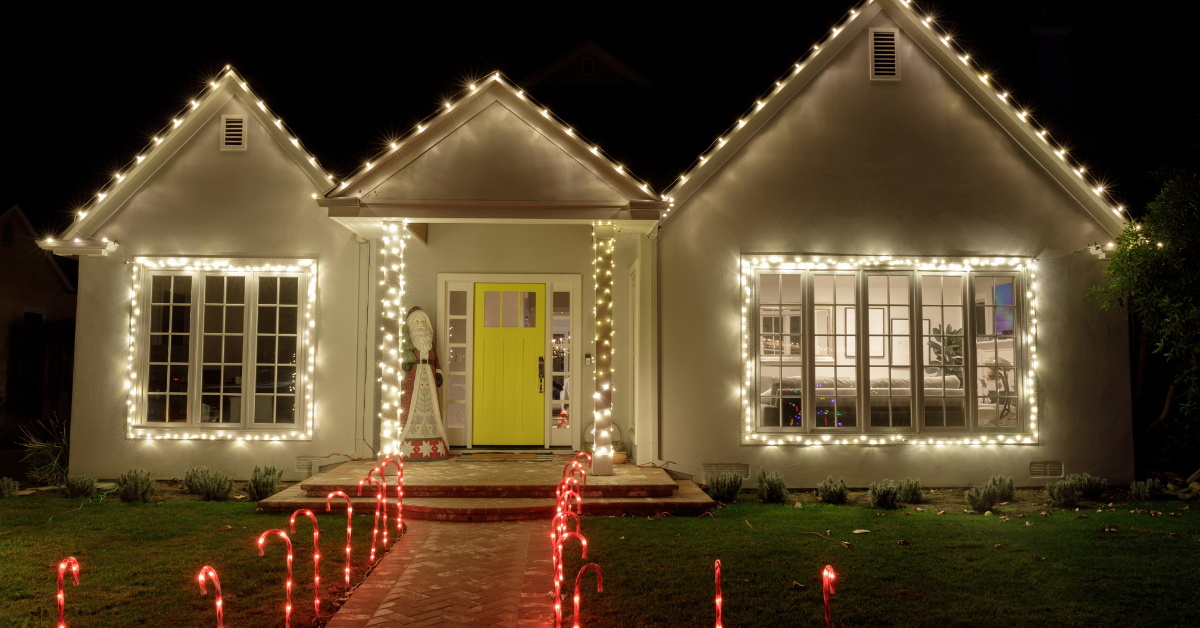“Political Signs and Holiday Decorations in Community Associations” – Community Trends

With election and holiday season upon us, community association boards are typically tasked with the best way to promulgate rules and regulations concerning political signs and holiday decorations. Living in a pluralistic society can have its challenges. However, a lawful, well-crafted, objective, and non-discriminatory policy can help a community live harmoniously while respecting the beliefs and traditions of all its members.
Political Signs
Many Master Deeds and Declarations prohibit any signs to be displayed on common property or in the doors and windows of the Unit. While such restrictions are permissible if the signs are in connection with a commercial or personal interest, such as a for-sale sign or a happy birthday sign, political signage cannot be completely banned. The New Jersey Supreme Court determined in two recent cases, Committee for a Better Twin Rivers v. Twin Rivers Homeowners Ass’n, 192 N.J. 344 (2007), and Mazdabrook Commons Homeowners Ass’n v. Khan, 210 N.J. 482 (2012), that due to the free speech protections as provided for in the New Jersey Constitution, notwithstanding the association’s rules or covenants, political signage cannot be completely banned; however, the association can regulate the time, manner, and place of such signs. It is presumed in this instance that signs, banners, and flags of a political nature are synonymous.
In general, courts hold that the First Amendment to the United States Constitution and the Bill of Rights only applies to “state action” (i.e., a governmental entity). However, the New Jersey Supreme Court’s reasoning in the above-referenced cases was that the New Jersey Constitution provides for greater First Amendment rights than found in the United States Constitution; and even though community associations are private entities which normally would not be defined as a state actor, the Court held the New Jersey Constitution grants certain free speech rights to owners within private community associations. The court’s holding was narrow and only applies in the context of political free speech and not to other areas of the law.
Typically, under the time, manner, and place rule, an association, for example, could enact a policy at a condominium providing that political signs are prohibited on the common elements, only a certain number of signs are permitted to be displayed from the unit, the size of the signs can be limited, illumination of signs are prohibited, and the signs can only be displayed for a certain period of time before and after an election. Legally, it is imperative, however, that the board enact a written policy reviewed by legal counsel prior to enforcement as every community is different in layout, such as a townhome versus a high-rise, and may have different covenants and restrictions in their governing documents.
Holiday Decorations
Some associations have taken the position that all holiday decorations are prohibited due to competing traditions and religious interests. Care should be taken to ensure that a community association has the legal authority in its governing documents to enact such a ban. While the focus of this article is not on religious symbols, there are instances where a community association may have to allow the display of a permanent religious symbol regardless of its covenants and restrictions, such as a mezuzah.
Most associations want to ensure that residents can enjoy the holidays and for the most part, many communities do so harmoniously without incident. However, it only takes the one owner that goes to the extreme with too many lights and the giant inflatable snowman, ultimately creating an interminable display that would rival any Christmas store, where a board determines a policy is needed to rein in Santa’s reindeer and the over-exuberant holiday reveler.
There are of course some practical issues that arise with holiday decorations, such as placing items on the common property and penetration of any common element, both of which are rightfully prohibited due to the need to preserve the integrity of the building, fire safety issues, and the well-being of residents. Again, as with the case of political signs, depending on the layout and ownership style of the community, such as whether it is a condominium or homeowners association, which may dictate different ownership interests as to building components and grounds, the board should enact a written policy reviewed by legal counsel if it wishes to provide decoration guidelines.
Further care is needed to act in a non-discriminatory manner. The “Holidays” do not only occur at the end of the calendar year with the celebration of Christmas and Hanukkah, but there are several other religions and cultural traditions that also celebrate certain holidays throughout the year. Just to highlight a few examples, while writing this article, it is almost time for Sukkot, or the Feast of the Tabernacles, that the Jewish community celebrates by building a Sukkah outdoors which is meant to be lived in during Sukkot. The Muslim community commonly decorates for Ramadan. A popular festival for the Indian community is Holi, the Festival of Colors which heralds the approach of spring. And, the Chinese New Year celebration invites festive decorations typically in January and February. Therefore, when enacting a policy, while a similar approach to the political sign policy can be taken by regulating the time, manner, and place of such displays, it must be done so in a manner that encompasses the pluralistic nature of our society throughout the year so that all residents can enjoy the holidays.





